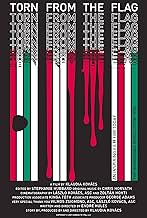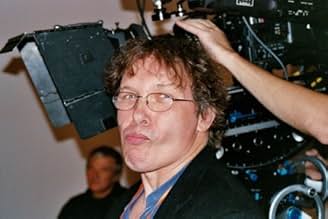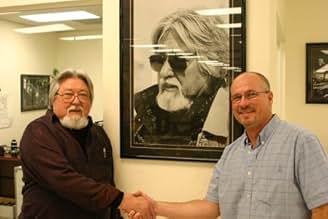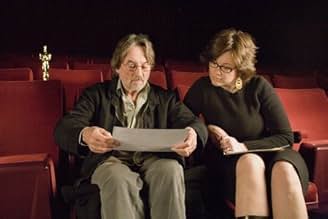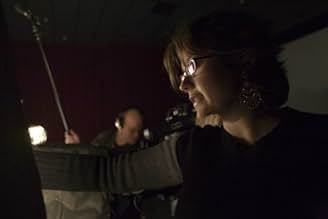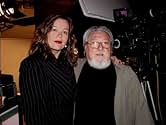Ajouter une intrigue dans votre langueA sociopolitical historical documentary-thriller about the international decline of communism and the 1956 Hungarian Revolution.A sociopolitical historical documentary-thriller about the international decline of communism and the 1956 Hungarian Revolution.A sociopolitical historical documentary-thriller about the international decline of communism and the 1956 Hungarian Revolution.
- Réalisation
- Scénario
- Casting principal
- Récompenses
- 5 victoires et 1 nomination au total
Leonid Brezhnev
- Self
- (images d'archives)
Winston Churchill
- Self
- (images d'archives)
Mikhail Gorbachev
- Self
- (images d'archives)
Nikita Khrushchev
- Self
- (images d'archives)
Ronald Reagan
- Self
- (images d'archives)
Franklin D. Roosevelt
- Self
- (images d'archives)
Joseph Stalin
- Self
- (images d'archives)
- (as Iosif Stalin)
Avis à la une
10reskat-1
I have just seen this movie and I want to see it again and again. If there is one fault with it, its the fact that Hules tried to squeeze too much into too little. Granted, he's got a lot to say, but I could just as well imagine this film as a mini-series. And that's because, like with a good book, you just want to read on and on. Ninety-some minutes are simply not enough. It leaves you hunger for more. That, I suppose is the intentional genius of writer-director Hules, who even, as far as I know, had the pleasure of editing 900 hours of footage into this piece. The miracle is that the movie is still coherent and understandable to everyone, even if you were born decades after the events, on a different continent. I recommend you see it, but I'm warning you that you'll actually need to pay very close attention all the way through! Bring your brain, and, as another reviewer suggested, also bring tissue.
10lcoyote
I know the story of the Hungarian Revolution all too well. My parents were Freedom Fighters who were both imprisoned for their efforts. Torn From the Flag explains the historical events succinctly yet emotionally. The footage that was shot by the young Laszlo Kovacs and Vilmos Zsigmond puts the viewer right into the middle of the brave fight. The score by Chris Horvath propels the emotions of the story. This is a film that should be seen by not only those of Hungarian descent but anyone seeking to gain the knowledge of how a small nation was able to rise up against a much larger oppressor. The filmmakers should be very proud of their efforts.
10vanoffel
Torn from the Flag is a true eye-opener on international policies. It gives you a very thorough understanding of the history surrounding the Cold War Era and the ideology of communism with touching and moving testimonies from several interesting interviewees. It shows us the unforeseen consequences of Western good intent and propaganda espousing democracy and freedom without the necessary follow-through - like our current situation in the Middle East. Director Klaudia Kovacs' courageous and exciting film examines these important matters through her young, compassionate, non-judgmental, brilliant eye. I highly recommend it to all viewers interested in international, social, and/or human-rights issues.
The Hungarian uprising of 1956 was the first time a people spontaneously overthrew a Communist government and successfully attained freedom -- even if only for a dozen days. The complex tale of how it came to be, and what contributed both to its success and to the all too short-lived duration of that success, combines a host of factors ranging from cynical geopolitical calculation to the individual initiatives of private citizens who discovered that they were not, after all, lacking in power. "Torn from the Flag" makes the myriad strands of the story clear -- even to someone unfamiliar with the history -- in its 97 minutes: and that, by itself, makes it an astonishing achievement.
It is, however, a great deal more. It presents a remarkably balanced account of a subject that still excites visceral passions more than half a century after the event. It offers moments of intense (and intensely moving) human connection, as participants relive their political, moral, spiritual, and physical journeys. And, in reels shot during the revolution by two film students -- Laszlo Kovacs and Vilmos Zsigmond -- it also offers instants of heart-stoppingly beautiful cinema, even when the images are of conflict, destruction, and death. The editing (reducing more than 90 hours of footage to under 100 minutes, still making it all comprehensible), the music (original scoring complementing a brilliantly chosen array of sources -- not least, using perfectly selected passages from Shostakovich's 11th symphony to complement martial scenes), and, above all, the people who gave of their time and their selves to be interviewed, make this a film to contemplate long, long after the house lights come up.
Nobody should think that this film merely rehashes an old tale of no current relevance: the people of Myanmar and Pakistan (to name just two examples) today face situations similar in many respects to that of Hungary 51 years ago.
Kudos to the indefatigable Klaudia Kovacs and her team for surmounting the odds in a nine-year struggle to complete this effort. The result is eminently worth it.
It is, however, a great deal more. It presents a remarkably balanced account of a subject that still excites visceral passions more than half a century after the event. It offers moments of intense (and intensely moving) human connection, as participants relive their political, moral, spiritual, and physical journeys. And, in reels shot during the revolution by two film students -- Laszlo Kovacs and Vilmos Zsigmond -- it also offers instants of heart-stoppingly beautiful cinema, even when the images are of conflict, destruction, and death. The editing (reducing more than 90 hours of footage to under 100 minutes, still making it all comprehensible), the music (original scoring complementing a brilliantly chosen array of sources -- not least, using perfectly selected passages from Shostakovich's 11th symphony to complement martial scenes), and, above all, the people who gave of their time and their selves to be interviewed, make this a film to contemplate long, long after the house lights come up.
Nobody should think that this film merely rehashes an old tale of no current relevance: the people of Myanmar and Pakistan (to name just two examples) today face situations similar in many respects to that of Hungary 51 years ago.
Kudos to the indefatigable Klaudia Kovacs and her team for surmounting the odds in a nine-year struggle to complete this effort. The result is eminently worth it.
This film lends perspective to anyone who is too young to know about the events that led to the Soviet domination of Eastern Europe at the end of WWII. Klaudia Kovacs has combined actual footage of the days of revolution (amazing that it was taken) that is really extraordinary. People tell their own stories about a cause that most of us don't know about and make you wonder if you would have half the courage that the Hungarians had to face a military machine. This movie is so well done. Courage, honor and politics collide in a wonderful film. Bring tissue. Stories of sacrifice, torture and loss are real, but you leave this film with gratitude for freedom and inspiration, too.
Le saviez-vous
- AnecdotesThe last film of legendary cinematographer László Kovács.
Meilleurs choix
Connectez-vous pour évaluer et suivre la liste de favoris afin de recevoir des recommandations personnalisées
Détails
Box-office
- Budget
- 1 700 000 $US (estimé)
- Durée
- 1h 37min(97 min)
- Couleur
- Rapport de forme
- 16:9 HD
Contribuer à cette page
Suggérer une modification ou ajouter du contenu manquant


